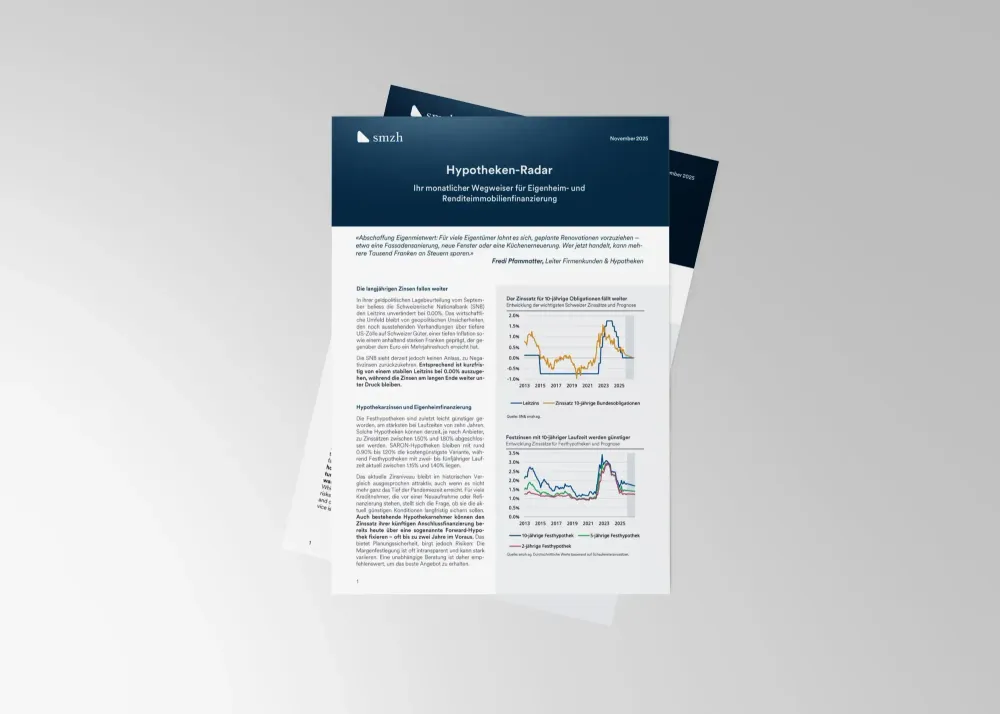(Direct vs. indirect amortization)
Repaying a mortgage can be done either directly or indirectly. With direct amortization, you make regular payments toward the mortgage, thereby reducing the outstanding debt. In case of indirect amortization, your payments are made into a pillar 3a pension account, which serves as collateral for the mortgage. In this case, the nominal amount of the mortgage remains unchanged, which can offer tax benefits.
In addition to regular repayments, extraordinary amortization payments can also be made, for example if you have additional funds available. However, it is important to observe the notice periods and terms of the mortgage agreement to avoid potential additional costs.

Assess your income situation, running costs, tax burden, and financial protection needs.
Take into account extraordinary income or potential financial reserves for additional amortization.
Decide between direct or indirect amortization.
When choosing indirect amortization, check whether a retirement savings account 3a or a retirement insurance 3a better meets your needs.
Read up on the terms and conditions of your mortgage, particularly when it comes to extraordinary amortization.
Many mortgage contracts stipulate that extraordinary repayments are only possible at certain times or that notice periods must be adhered to. If these conditions are ignored, early repayment penalties may arise.
Make an amortization plan that is aligned with your goals and financial means.
Plan any extraordinary amortizations in time to avoid potential charges resulting from missed deadlines.
Adjust your plan to changes in circumstances such as changes in income, inheritances, or additional investment possibilities.

Stay one step ahead at all times: Our Mortgage Radar provides details about developments and trends on the Swiss mortgage market – right from the desk of our experts.

Our latest Outlook Real Estate Market provides an overview of recent developments, opportunities, and trends – an in-depth analysis from our experts.
Monthly updates on real estate and mortgages. Subscribe now and identify opportunities early.
Our experts support you in planning and executing your mortgage repayment, including extraordinary amortizations:

Together let us develop an optimal strategy for your mortgage repayment:

We handle questions such as those shown on the right on a daily basis. You don't need to deal with them by yourself – our 360° Check-Up is free of charge and non-binding.
An extraordinary amortization is a voluntary, additional repayment that goes beyond the regularly agreed amortization. It is often carried out when you have exceptional income at your disposal, such as an inheritance or year-end bonus.
You might have to pay early repayment penalties that would make your repayment more costly.
No, it isn't. In an indirect amortization, your payments go to a retirement account or retirement insurance. Direct amortization of the mortgage only takes place when you withdraw the retirement assets.